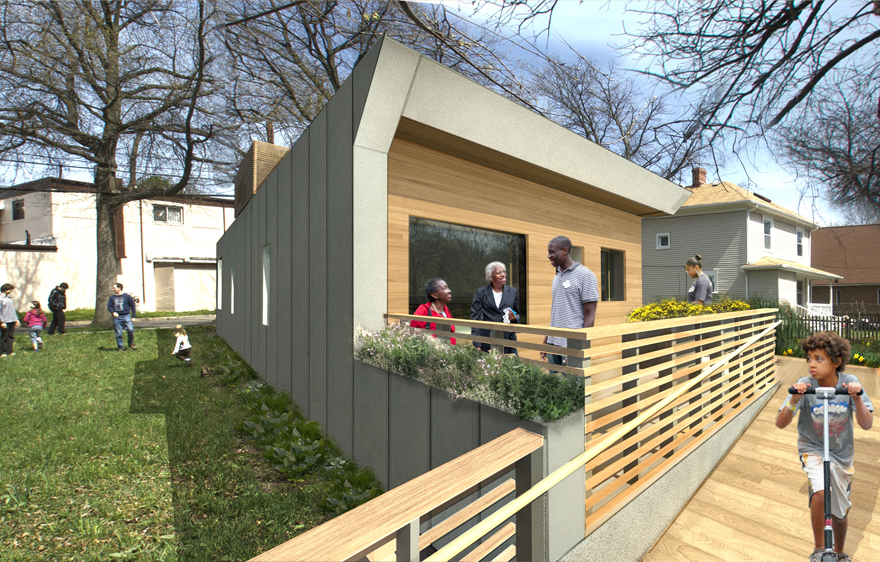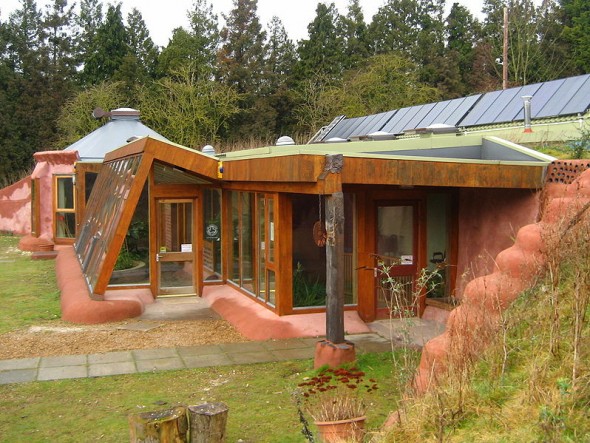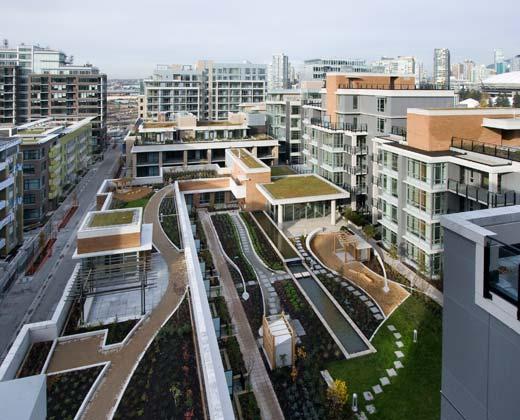EMPOWERHOUSE is a community-based approach to sustainable urban development showcasing the design of two affordable, energy-efficient solar powered homes and a neighborhood learning garden for inner-city Washington DC and beyond.
Tag: solar power
Earthship Biotecture: Self-Sufficient, Off-the-Grid Communities
Passive solar Earthships provide electricity, potable water, sustainable food production, with contained sewage treatment, and can be built anywhere in the world. Renegade eco-architect Michael Reynolds’ construction and design process called Earthship Biotecture creates beyond LEED Architecture, a sustainable green building design made of natural and recycled materials.
Urban Neighborhoods Revitalized with Certified Greening
Three LEED-ND pilot participants—the Brewery in Milwaukee, Wisconsin; the SALT District in Syracuse, New York; and Tassafaronga Village in Oakland, California—show promise as neighborhood-scale revitalized green adaptive reuse in a difficult economy.
Nuclear Power Plays: Ye Old Boys Club – By Jerry Collamer
The Good Ol’Boys at the club say: “Nuclear is risky but, as an investment opportunity, with trillions in governmental subsidies, and naive ratepayers picking up the rest, how can one’s portfolio be without it? That said, I heat the spas and pools in all of my homes with solar.”
How to Build a Greener City – By Michael Totty
We must re-create cities greener and more sustainable from the ground up. The goal: compact living environments requiring less resources that maximize utilization of land, water and energy. Here are some suggestions.
Amory Lovins: Efficiency and Renewable Energy will Reinvent Fire
Reinventing Fire maps pathways for running a 158%-bigger U.S. economy in 2050 but needing no oil, no coal, no nuclear energy, one-third less natural gas, and no new inventions.
End Nuclear Power: Renewables and Conservation Now
What about energy conservation, as well as cogeneration, wind power and cheaper, more–efficient forms of renewable energy? Physicist Amory Lovins from the Rocky Mountain Institute argues that shifting investment of tens of billions of dollars from nuclear into renewable energy would reduce far more carbon per dollar.






